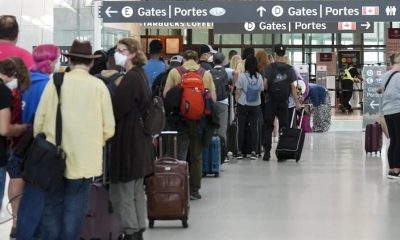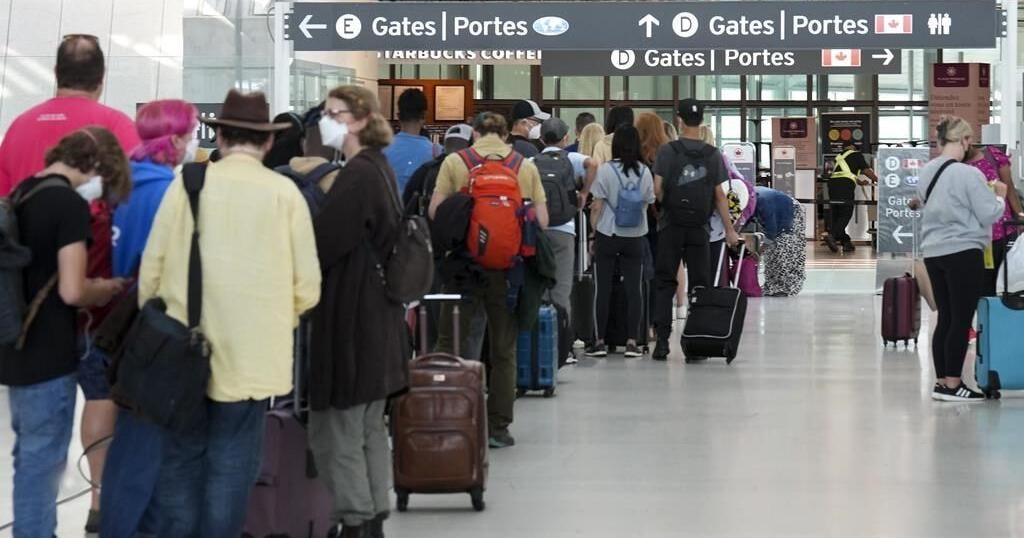CHARLOTTE, N.C. (AP) — UNC Asheville soccer player Xander Naguib and his teammates are preparing to spend the next several weeks — or perhaps months — at the state’s sister school in Charlotte, where they will be housed, fed and be able to continue playing sports.
Given what Naquib has been through in the last week, he couldn’t be more grateful. He and his teammates are among many programs in the area that have relocated to other schools in what one athletic director called a stirring example of colleges helping each other amid dire need.
Naguib and his friends were in Asheville when Hurricane Helene arrived, leaving a path of destruction in its wake with more than 200 people dead and countless others still missing. Without power, water and cell phone service and their off-campus apartment taking on water, Naguib was forced to evacuate even as flooding washed away local roads.
“It felt like we were blocked off from the world,” Naguib said.
Hours later, Naguib found a hotel and contacted his worried parents in Frisco, Texas, who quickly booked him on the next flight out of Asheville.
With UNC Asheville’s campus closed for the next 10 days and classes cancelled until at least Oct. 28, the school has asked students to return home or placed them on other campuses. Athletic teams have the benefit of being with their teammates; for Naguib, it means living and playing soccer two hours away in Charlotte.
UNC Charlotte athletic director Mike Hill had reached out to Asheville AD Janet Cone to offer any assistance in the wake of the disaster.
Cone took him up on his offer, and Charlotte will host Asheville’s men’s and women’s soccer teams and volleyball squad in the days ahead, putting them up at an overflow dormitory, feeding them meals in the cafeteria and allowing them to use their athletic facilities. They will have access to medical attention to treat injuries.
“We want them to feel comfortable,” said Chris Thomasson, Charlotte’s executive associate athletic director for internal affairs. “A lot of people worked hard to make it happen. And our coaching staffs have been terrific. It’s interesting, on the field or the court our coaches are fierce competitors, but when they heard Asheville needed help they were like, ‘whatever we can do — anything.'”
UNC Charlotte hasn’t been the only school to step up.
Asheville’s tennis teams will be living and practicing at High Point University. Its swim teams will stay at Gardner-Webb University. The golf teams will be head to Wofford College next week.
Cone is still working to get all the school’s athletes placed, including the school’s basketball teams as part of what she called “a logistical puzzle with a whole lot of pieces.”
But she’s confident the school will get through it.
“The world of college sports is a really tight-knit group,” Cone said. “It’s been really heartening for me to see. So many people have gone out of their way to help us. I’ve received calls from schools all over the state and all over the country saying, ‘what can we do?’ There is a lot of trouble in this world and people sometimes do crazy things, but at times like this it makes you feel good to the see the care in people’s hearts.”
UNC Asheville isn’t the only college impacted by the hurricane. Schools such as Tusculum, Lees-McRae, Western Carolina, North Greenville, Appalachian State and Montreat are among those whose campuses were hit hard, including sports facilities. Fall sports schedules are severely disrupted.
Still, colleges and high school sports teams are finding their way.
With no water available in Greene County (Tennessee), Division II college Tusculum had its teams leave the Greeneville campus with help from sports rivals, a pair of former Tusculum coaches, alumni, friends and neighbors. Josh Ealy, Tusculum’s vice president for athletics, said the school won’t be able to do anything on campus until water service resumes.
Tusculum’s football team is staying in spare space at a residence hall and eating on campus at rival Carson-Newman in Jefferson City. The Pioneers are practicing at Jefferson County High School, which is coached by Spencer Riley, who was Tusculum’s offensive line coach for seven seasons.
The Pioneers’ women’s soccer team is in Baneberry, Tennessee, with former head coach Mike Joy reaching out to family and friends to host the players. Joy helped coach many of the current players who are practicing at Lakeway Christian Academy in White Pine.
The men’s soccer team accepted help from rival Lincoln Memorial University to stay, eat and train on campus in Harrogate.
Lincoln Memorial also is serving as the host for games for both of Tusculum’s soccer teams and volleyball. Tusculum’s first-year women’s volleyball coach Hannah Barrett tapped into her connections for her team to stay with people in the Knoxville area. Her team is practicing at the University of Tennessee.
“This has been a tremendous undertaking which came together very quickly due to the hard work of so many people,” Ealy said.
Cone said she is optimistic that UNC Asheville’s fall sports teams will play close to a full schedule, even if games will mostly be away from campus.
On Friday, Cone and her staff returned to Asheville to retrieve sports equipment and uniforms that were left behind in the evacuation process. They plan to distribute them to their students hosted at other schools.
Returning home was tough. The destruction to the tight-knit community is unspeakable.
“I can’t emphasize this enough, sports is a very, very small part of all this because we’re talking about people who’ve lost their lives and their homes — they lost everything,” Cone said. “It’s my job to try help our student-athletes get back to some sense of normalcy and our staff is working to do the best we can to help them.”
For Naguib, that means the world.
“If we are able to play, that’s all that matters,” Naguib said. “I feel thankful and blessed to have a place to stay and do what I love.”
___
AP journalists Teresa Walker, Aaron Beard and Barry Bedlan contributed.
___ AP’s coverage of the hurricane:




























